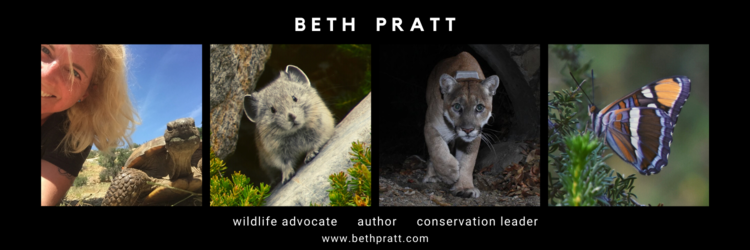 Yellowstone's frogs in new airport PSA (image courtesy Save the Frogs)Next time you frequent the airports in Denver, Chicago, St. Louis or Detroit, you might see a Yellowstone Columbia spotted frog peering at you from a colorful poster. Save the Frogs, a non-profit dedicated to amphibian conservation, has launched a new public service campaign about the plight of the first national park’s amphibians.
Yellowstone's frogs in new airport PSA (image courtesy Save the Frogs)Next time you frequent the airports in Denver, Chicago, St. Louis or Detroit, you might see a Yellowstone Columbia spotted frog peering at you from a colorful poster. Save the Frogs, a non-profit dedicated to amphibian conservation, has launched a new public service campaign about the plight of the first national park’s amphibians.
Frog populations have been declining worldwide at unprecedented rates, and nearly one-third of the world’s over 6,000 amphibian species are threatened with extinction. Up to 200 species have completely disappeared since 1980, while amphibians naturally go extinct at a rate of only about one species every 250 years.
In Yellowstone, a recent study found that three of the four species of the park’s amphibians had decreased as a result of climate change. Researchers surveyed kettle ponds (ponds originally formed when glaciers retreated and fed by snowmelt and groundwater) between 2006 and 2008 in Yellowstone's Lamar Valley. They discovered that dry ponds have increased 4-fold in the past sixteen years, and as a result eliminated a large segment of ideal amphibian habitat in the park.
Dr. Kerry Kriger, founder and Executive Director of Save the Frogs, visited Yellowstone last year and gave a talk to park visitors about amphibian decline. He got the idea for the PSAs and approached ClearChannel about placement in airports; the company agreed to help.
Kriger hopes the public will take notice and take action. “The goal of the ad is to raise awareness of amphibian declines, and to ensure that people know that climate change is a problem now, not something that needs to be dealt with in the future. I've always thought that Yellowstone embodied the issue, as it's the world's oldest protected area: if we can't save Yellowstone's wildlife, how much chance do we have to save wildlife anywhere else?”
Save the Frogs is also holding its second annual Save the Frogs Day on April 30, 2010. Events are being planned throughout the United States, South Africa, India, Australia, Croatia, Italy, the United Kingdom, and Colombia. For more information, or to participate in the event, visit the Save the Frogs website.

